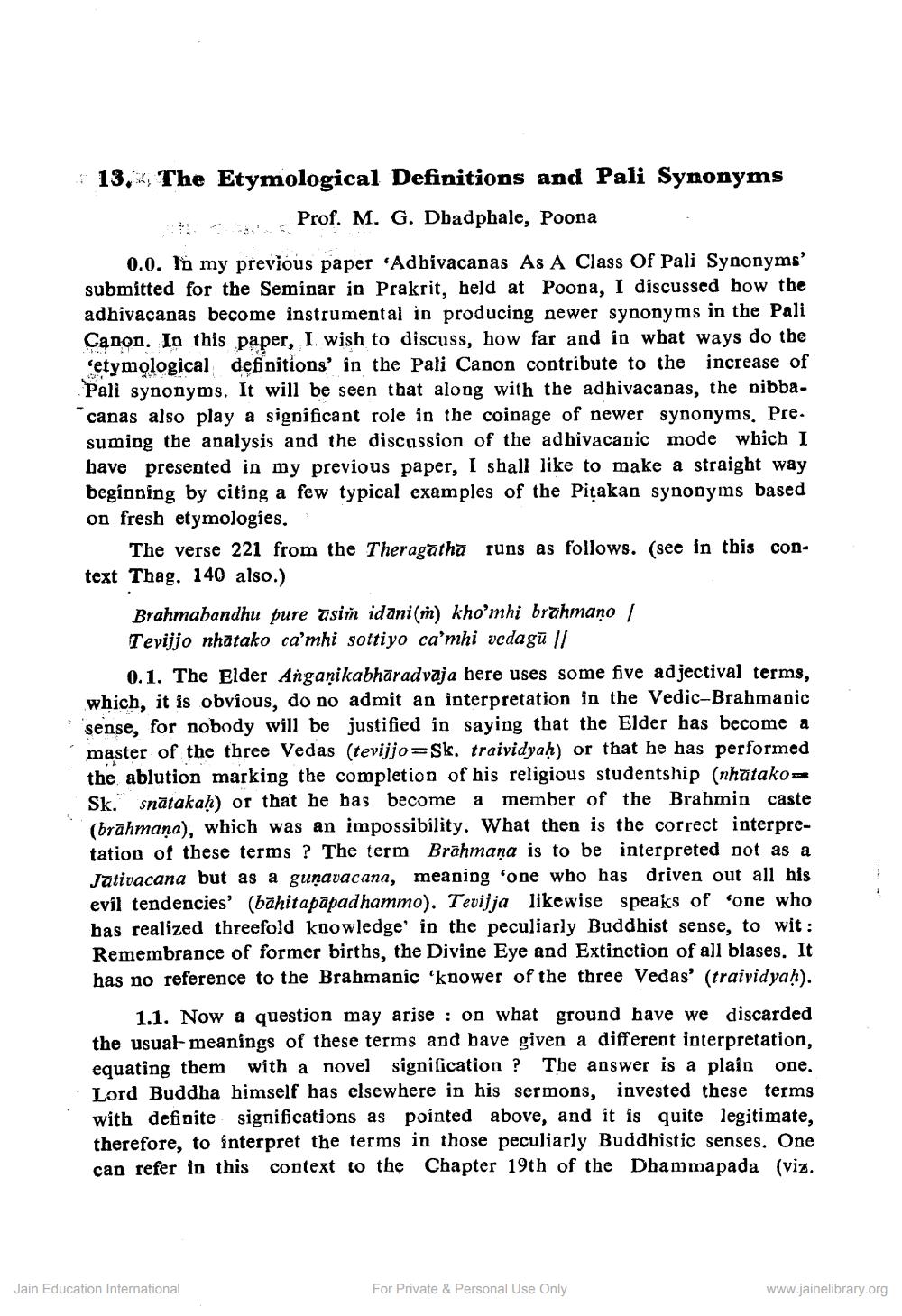________________
13. The Etymological Definitions and Pali Synonyms
Prof. M. G. Dbadphale, Poona
0.0. In my previous paper "Adhivacanas As A Class Of Pali Synonyms' submitted for the Seminar in Prakrit, held at Poona, I discussed how the adhivacanas become instrumental in producing newer synonyms in the Pali Canon. In this paper, I wish to discuss, how far and in what ways do the 'etymological definitions in the Pali Canon contribute to the increase of Pali synonyms. It will be seen that along with the adhivacanas, the nibba. canas also play a significant role in the coinage of newer synonyms, Pre. suming the analysis and the discussion of the adhivacanic mode which I have presented in my previous paper, I shall like to make a straight way beginning by citing a few typical examples of the Pitakan synonyms based on fresh etymologies.
The verse 221 from the Theragātha runs as follows. (see in this context Thag. 140 also.)
Brahmabandhu pure asiñ idani(m) kho'mhi brahmano / Tevijjo nhatako ca’mhi sottiyo ca'mhi vedagū //
0.1. The Elder Angaạikabhāradvaja bere uses some five adjectival terms, which, it is obvious, do no admit an interpretation in the Vedic-Brahmanic sense, for nobody will be justified in saying that the Elder has become a master of the three Vedas (tevijjo=Sk. traividyah) or that he has performed the ablution marking the completion of his religious studentship (nhătako Sk, snātakah) or that he has become a member of the Brahmin caste (brahmaņa), which was an impossibility. What then is the correct interpretation of these terms ? The term Brāhmaṇa is to be interpreted not as a Jativacana but as a gunavacana, meaning 'one who has driven out all his evil tendencies' (bahitapāpadhammo). Tevijja likewise speaks of 'one who bas realized threefold knowledge in the peculiarly Buddhist sense, to wit: Remembrance of former births, the Divine Eye and Extinction of all blases. It has no reference to the Brahmanic 'knower of the three Vedas' (traividyaḥ).
1.1. Now a question may arise : on what ground have we discarded the usual meanings of these terms and have given a different interpretation, equating them with a novel signification ? The answer is a plain one. Lord Buddha himself has elsewhere in his sermons, invested these terms with definite significations as pointed above, and it is quite legitimate, therefore, to interpret the terms in those peculiarly Buddhistic senses. One can refer in this context to the Chapter 19th of the Dhammapada (viz.
Jain Education International
For Private & Personal Use Only
www.jainelibrary.org




